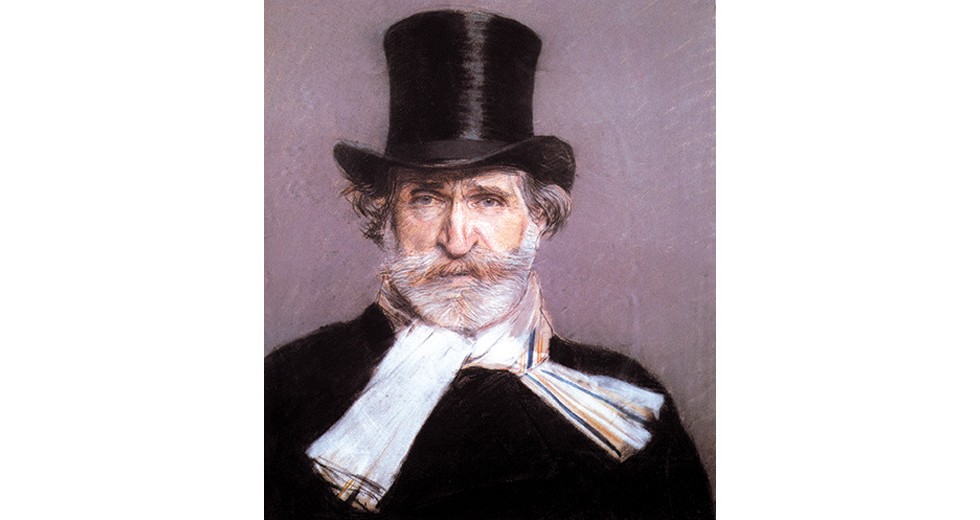
As Giuseppe Verdi’s funeral cortege moved through the streets of Milan, Arturo Toscanini conducted the chorus and orchestra of La Scala in “Va, pensiero,” the famous chorus from the composer’s Nabucco, which had premiered six decades before.
That chorus, the lamentation of the Hebrews held captive by the Babylonians, spoke directly to those present at Nabucco’s 1842 premiere. Italy was bristling under Austrian rule and soon enough “Va, pensiero” became the country’s alternative national anthem, and Verdi became a leader in the movement toward a free and united Italy. “With this opera, it is fair to say my artistic career began,” wrote Verdi.
It was quite a career. Rigoletto, Traviata, Aida … his works have enthralled audiences since their premieres. “Verdi’s writing for voice is a camera lens that zooms in on a person’s soul,” writes cultural historian Alex Ross.
Along with possessing an ear for popular melody and writing music that is intensely sincere, Verdi had a knack for layering social and political commentary into his operas. His battles with the censors were legendary. But above all, Verdi possessed an earthy practicality and a great respect for the public. “The box office is the proper thermometer of success,” he stated more than once.
In 1861, Verdi was elected to the first national Italian parliament. Citizen Verdi would live another four decades and produce several more masterpieces. But composing opera did not occupy all his time. In 1879, Verdi raised a huge sum of money for the victims of floods that had ravaged Italy, and by 1888, he had built and equipped a hospital in a town near his estate.
He drew immense satisfaction from financing and planning a rest home for aged musicians. “Of all my works, that which pleases me the most is the Casa that I had built in Milan to shelter elderly singers who have not been favored by fortune … poor and dear companions of my life!”
Casa di riposo opened its doors in 1902 on what would have been the composer’s 89th birthday. It is still in operation today. Visit casaverdi.org for more information.